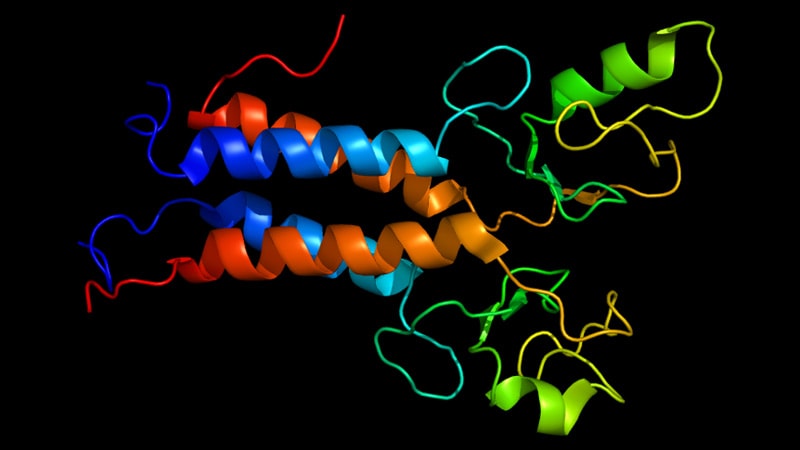An ultra-rare enzyme deficiency that keeps infants from achieving proper muscle function among other developmental delays now has its first FDA-approved treatment. The new product, a gene therapy developed by PTC Therapeutics, is also the first gene therapy approved in the U.S. that’s administered directly into the brain.
The PTC therapy was tested only in pediatric patients, but the FDA approval covers the treatment of both children and adults who have the inherited disease, called aromatic L-amino acid decarboxylase (AADC) deficiency. The therapy, known in development as eladocagene exuparvovec, is already approved in Europe, marketed there as Upstaza. Warren, New Jersey-based PTC will commercialize the gene therapy in the U.S. under the brand name Kebilidi.
AADC is an enzyme important to the production of neurotransmitters such as dopamine, which is key to movement, attention, learning, and memory. AADC deficiency stems from a mutation to the DDC gene. The enzyme deficiency can be treated with drugs such as dopamine agonists, which mimic the key brain chemical to activate dopamine receptors in the brain.
Kebilidi is a gene replacement therapy that swaps in a functioning version of the DDC gene for the mutated one. The genetic cargo is carried aboard an adeno-associated virus. Kebilidi is administered in one surgical session that includes four infusions of the therapy into the putamen, a part of the brain involved in learning and motor control. The therapy is intended to lead to expression of the deficient enzyme, followed by an increase in brain production of dopamine.
FDA approval of Kebilidi is based on the results of an open-label study testing the gene therapy in 13 AADC patients ranging from 16 months to 10 years of age. All of them had no gross motor function, which is the most severe form of the disease. These patients were compared to the natural history of patients who had untreated AADC deficiency.
Results showed Kebilidi demonstrated efficacy by achieving gross motor function improvement in eight of the 12 treated patients measured at 48 weeks. Three of the patients achieved full head control and two were able to sit with or without assistance. Earlier treatment appears to lead to better outcomes. The two patients who were able to walk backwards at week 48 were treated before 2 years of age. The four patients who were unable to achieve new gross motor milestones were between 2.8 and 10.8 years of age when they were dosed.
PTC’s gene therapy for AADC deficiency received European approvals in 2022 for the treatment of patients 18 months and older. The therapy has since received approvals in Israel, Brazil, and Taiwan. Progress for the gene therapy at the FDA was slowed by the agency’s requests for additional data. The FDA accepted PTC’s biologics drug application for the therapy this past May.
The FDA decision for Kebilidi is an accelerated approval, a speedier decision based on a thinner body of evidence. Such approvals typically require companies to provide additional data from a confirmatory clinical study. PTC said confirmatory evidence will come from long-term follow up of patients already treated in the study. In a note sent to investors Thursday, William Blair analyst Sami Corwin noted the effects of the PTC gene therapy have already shown durability for up to 10 years post-treatment.
“We view the approval of Kebilidi in the U.S. favorably for PTC and think the FDA approval of the first gene therapy that is administered directly to the brain is a positive for the broader gene therapy space, particularly those pursuing similar routes of administration,” Corwin said.
Given the limited number of AADC patients (fewer than 350 patients have been reported in the medical literature, according to the National Organization for Rare Disorders), William Blair projects the PTC product could achieve peak revenue of $266.3 million in 2026. But Kebilidi could boost PTC’s coffers in another way. The therapy’s approval came with a priority review voucher, which PTC may apply toward faster regulatory review of a future rare disease drug candidate. Biotechs awarded such vouchers usually sell them to big pharma companies. Last week, Acadia Pharmaceuticals sold the priority review voucher it received for winning the first FDA approval of drug for the rare neurological disorder Rett syndrome. The undisclosed buyer paid Acadia $150 million.
Photo: Getty Images






